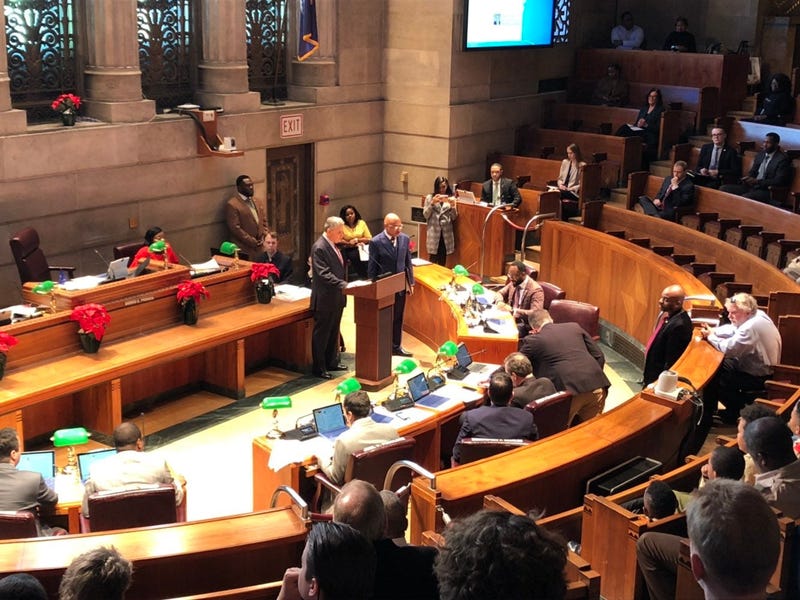
BUFFALO (WBEN) - The Buffalo Common Council voted to unanimously pass what could prove to be a critical piece of legislation for city residents - a template for a new fiber-optic franchise agreement.
Essentially, this "living, breathing" document will help establish guidelines for agreements between the City of Buffalo and service providers, and it will make possible a way for several carriers to provide broadband in various areas of the city.
After being honored for his 22 years of service on the Council, Lovejoy District Councilman Richard Fontana explained his last piece of legislation.
"This is new territory with the fiber-optic cables coming into the City of Buffalo," said Fontana. "We wanted to make sure that we have an ordinance that's in place that allows for the competition to exist because it was always able to be existing, but if we charge too much, it could cut off competition, essentially, so we had to come up with some numbers today that made sense for the companies and for the city taxpayers.
"This is a big deal to finally have a template for fiber-optic carriers in the City of Buffalo," said Pridgen. "At the end of the day, technology is moving probably quicker than we're aging, and so it's very important, not only for this generation of Buffalonians, but for generations to come.
"In the past, we did not have a template of what these carriers would have to pay, of how much, of what other responsibilities they have, and some of what we already did have in place at times kind of choked the industry," he continued. "So, now to work with the industry, with the administration, to work with the Council, it's going to benefit the people of the City of Buffalo."
As of now, the only carrier within the city is Spectrum, which has received a fair bit of criticism for lack of service and slower internet speeds.
"I think it's going to take about a year," Fontana told WBEN's A New Morning. "I think they'll be up and running in 2020. They want to have their franchise agreement by February. They're on an aggressive timeframe."
The internet company hopes to have 80,000 homes in the City of Buffalo and Rochester by the end of 2020. By 2022, they hope to service 230,000 homes. Pridgen says this is extremely important for residents because reliable internet access has become a necessity, not simply a luxury.
"Right away, we are seeing people who want to bring lines in now from Toronto; we're seeing a new investment coming in with the Tom Golisano project, which will lessen the cost for something that is very important to the average household, and that it internet service," he said.
